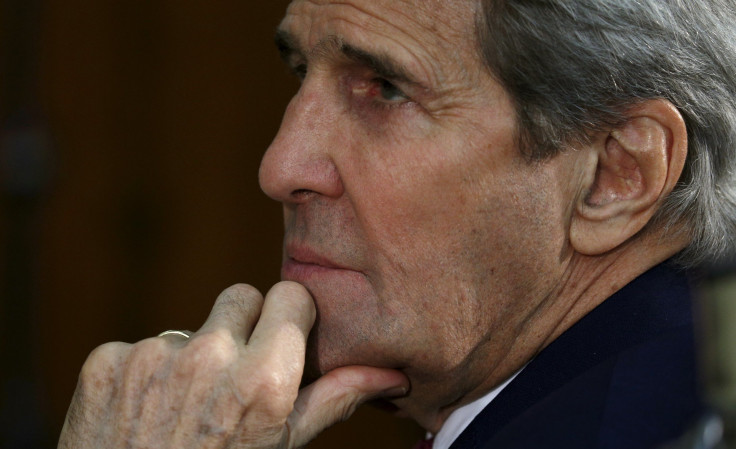US Says ISIS Crimes Amount To Genocide, But Prosecution Is Difficult

U.S. Secretary of State John Kerry announced Thursday that the American government has determined that the crimes committed by the Islamic State group in Iraq and Syria amount to genocide. This is the first time the United States has declared a genocide since Darfur in 2004.
"My purpose here today is to assert in my judgment, [ISIS] is responsible for genocide against groups in areas under its control, including Yazidis, Christians and Shiite Muslims," Kerry said in a news conference at the State Department. "Without our intervention, it is clear that those people would have been slaughtered."
Genocide has been declared only a handful of times throughout history. Those declarations usually followed the end of a conflict or string of continuous atrocities. Well-documented examples of genocide include crimes committed in the Holocaust, the conflict between Armenians and the Ottoman Empire, the Khmer Rouge in Cambodia in 1975, ethnic Hutus slaughtering Tutsis in Rwanda in 1994, the Serbs during the breakup of the Yugoslavia, and Arab militias systematically killing Darfuris in West Sudan.
While the decision to declare ISIS committed genocide is significant, it will be difficult for the international community to find a way to prosecute the militants. The International Criminal Court (ICC) is in charge of prosecuting crimes of genocide, but several issues stand in the way of the court beginning a trial.
First, prosecuting crimes of genocide is extremely difficult, as past decades have shown, even when investigators have gathered all the necessary evidence. For example, although the U.S. Secretary of State Colin Powell said in 2004 that genocide had been committed in the Sudanese region of Darfur, the ICC has had difficulty getting those indicted to the stand. Sudan is not party to the Rome Statute, the law that says a country cannot legally carry out acts of genocide. Although the ICC can conduct its own investigation, it usually starts proceedings with a referral from a country that is party to the Statute, or if the United Nations refers the case. The United Nations Security Council referred the case to the ICC in 2005.
But although the Sudanese President Omar al Bashir has been indicted on charges of genocide, he still holds power. He is the first sitting president to be indicted by the ICC. His arrest warrant has been out for years.
Since the conflict is ongoing in Iraq and Syria, and because ISIS is actively carrying out attacks in the region, starting the legal process for prosecution is almost impossible.
Second, prosecuting ISIS militants is difficult because the group's members hail from every corner of the globe and because the group itself is not a subsidiary of any national government.
There are three ways to prosecute ISIS’ international crimes: in the domestic courts of Iraq and Syria, before an ad hoc tribunal, or prosecuting ISIS in the ICC, which poses the most problems of all.
The ICC usually prosecutes only state actors, like presidents or other members of a government, for crimes of genocide. As a rule, it does not prosecute non-state actors like ISIS members for specific acts of genocide, although it technically has the ability to do so. Human rights lawyers have said publicly that most of ISIS' crimes could be prosecuted through various countries’ domestic legal systems instead of being referred to the ICC.
But since ISIS has members from many nations, prosecuting ISIS would require every country with ISIS nationals to begin investigations into individuals in the militant organization to determine whether they were responsible for committing crimes that amount to genocide.
The last option is that the United Nations Security Council establishes an ad hoc tribunal to prosecute ISIS members. The Security Council has created two such tribunals, one to prosecute international criminal violations during the 1994 genocide in Rwanda and the international criminal violations that occurred during the struggles in the former Yugoslavia in the early 1990s.
The Security Council could establish a tribunal for Iraq and Syria to prosecute ISIS’ crimes against humanity, such as genocide, because both Iraq and Syria, as members of the United Nations, would be required to cooperate and abide by the decisions of the tribunal.
Human rights and legal experts consider this the most attractive option. Several international human rights lawyers told International Business Times that some international treaties, such as the Genocide Convention, impose obligations on states with respect to gross crimes committed by non-state actors. Since the U.S. has declared that ISIS' crimes amount to genocide, this means that if the government knows the group is still carrying out those crimes, the White House could be legally obligated to take action.
© Copyright IBTimes 2024. All rights reserved.





















